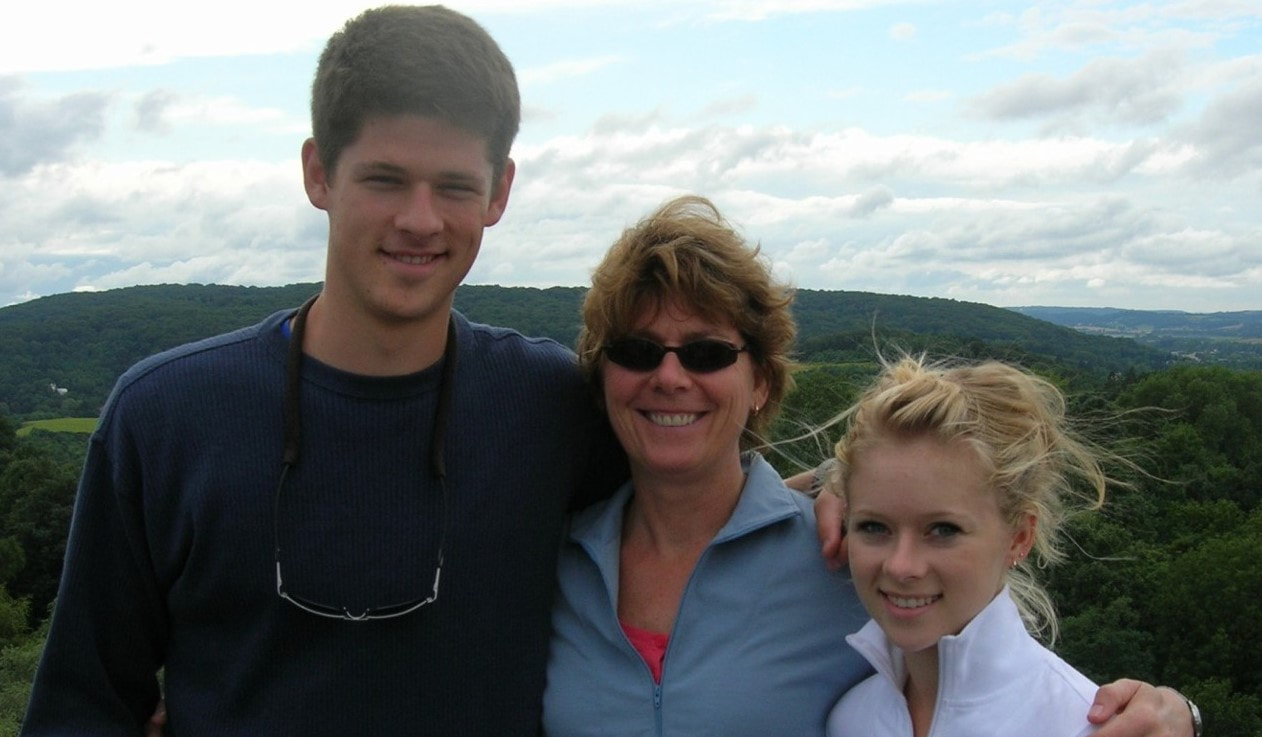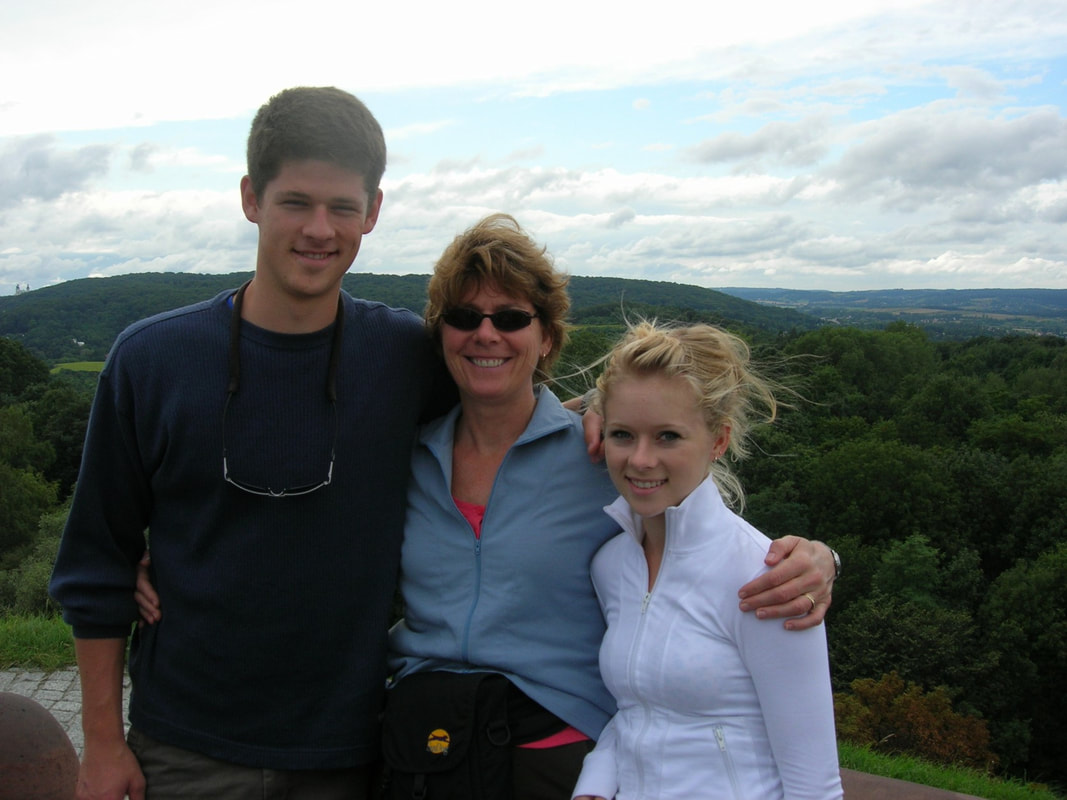I recently watched a 60 Minutes report on “Gold Star” parents whose children have been lost to war. Please understand that by no means am I directly comparing myself to these parents who talk about their beloved children with a love and admiration about their meaning on this Earth. Their experience is so different than mine and so much the same in that we both grieve the death of a child. I can only tell you that something resonated with me in listening to these Gold Star parents. At the very same time, I realized that I felt distinctly alone.
I’m a 63-year old mother of two children, who made their baby food from scratch, cleaned stalls while they took riding lessons, kissed their faces every day. And I am a marriage and family therapist, whose two children in their thirties, have given her the silent treatment for the past nine years.
According to the 2016 report, Gold Star parents feel well supported in their lifelong grief. Best supported by those who fear becoming a Gold Star parent; Blue Star parents whose children are presently in a hostile war zone. This is not the experience of my chapter of Brokenhearted parents.
To illustrate my point, I can meet someone outside the circle of my closest friends. How common is it to ask someone of my generation about whether you have children? Where do they live? Do you get to see them often? Each time I choose how I am going to answer these innocent questions.
Herein lies the ravine of distinctions. I believe it is impossible for even those who love me dearly to not have at least a fleeting thought as to what I could have done to alienate my children. What does a parent do that results in complete estrangement from both of her children? She must have done something. In answering those same questions, a Gold Star parent would probably be awarded a respect in having raised such a good person willing to sacrifice the most. I imagine there would be an expression of sorrow for this parent’s loss and grief. It happened to her. My grief? I somehow made it happen.
I couldn’t have felt more isolated in these moments. I did not lose my children to war, to disease, to murder or accident. I lost my children because they didn’t want me in their lives anymore.
What does it mean to me as the mother of my children? What I have felt is a shame that I cannot share my deepest pain about the death of my relationship with my children with almost anyone.
Dr. Kenneth Doka (2017)[1] would say I was experiencing a disenfranchised grief, a grief that is often ignored and denied public support. I felt that any version of Blue Star parents didn’t want to get too close, maybe for fear of their worst fear happening by association. No foxhole friends.
What did happen was the finality of a divorce nine years ago. And my college and post college aged children suddenly refused to answer my phone calls, texts, or emails. I was shocked. I began apologizing for the mistakes that I could imagine. Nothing I said seemed to make a difference. They silently refused to join me in family therapy. Silent they have stayed.
Dr. Joshua Coleman (2018)[2] has researched adult child estrangement. "I think it's important that we're not too overly reductionistic in terms of the causes of estrangement. I do think that there are plenty of abusive, neglectful parents, and that estrangement is certainly understandable from that perspective. But I do not believe that constitutes the majority of people who end up estranging — even though I wouldn't contest the reasons.” "We live in a culture dominated by a psychological narrative where people are led to believe the way that their lives turned out is controlled by their childhood," says @drjcoleman.
Alone in my head, my mind whirled around with my thoughts and fears. I remember how my heart would sink when I woke up in the morning with thoughts of my children. I felt a battle raging and I knew who was going to be dying in that one. My eyes would open as I gave up and felt buried alive for yet another day.
“What did I do that was so unforgivable?”
“Why wouldn’t they want to forgive me?”
I could react and answer those questions by saying that my children are manifesting their own mental health challenges. That my children are corrupted by their paternal family inheritance. That they are asserting their own revisionist history. That women/mothers are held to a much higher standard and designating all responsibility for any trauma to me, their Mother, I am unforgivable.
My world had changed without my participation. All kinds of things were happening that I didn’t want to happen. What I came to realize was that I could participate in living a different life and it had to be one without children in it. I realized that I didn’t want to die inside. I wanted peace of mind.
Eventually, I shared my anguish, with my new husband, good friends, and family members. I began to believe what they were saying to me. Hearing their words of kindness, memories of witnessing my good mothering, belief in who they have known me to be over so many years, I began to quiet my weeping to listen to their voices. “When we bury the story, we forever stay the subject of the story,” Dr. Brene Brown [3] writes. “If we own the story, we get to narrate the ending.”
In my story, I had to learn that my children’s alienation from me could never be commensurate with any mistake I ever made with them. I had to learn about the retrospective guilt that every parent can feel when evaluating our history of parenting our children. I had to learn that who I am is not defined by my children’s alienation.
It has been nine years. I don’t know where my children live. I no longer try to call or send a text or write an email to which I never get a reply. The absolute silence that has existed, after my divorce from a marriage of 25 years, has been deafening.
I have compassion for my children. I believe we are living in an era of nonchalance and it is their era, informed by the commonality of ghosting and social media abuse. Today, there are more adult estrangement articles that support the child’s right to sever their relationship with their parent even when the parent exerts effort at reconciliation.
Is there a formula, a guarantee that our children will appreciate our loving efforts and readily given sacrifices to raise them the best we know how? The evidence leans towards the fact that there is no formula. Abusive mothers can have relationships with their adult children and caring fathers can be estranged from their adult children.
A child can choose to negate their parent, to strip them of any history of nurturing and good care, to no longer acknowledge the bond between parent and child. What atrocities could rise to a level of nullifying my identity as my children’s mother I do not know.
My moment of clarity came at my Mother’s funeral last year. I looked up while giving the eulogy and saw the smirk on my son’s face and my daughter rolling her eyes. In just ‘that’ moment, I knew something very important: “This really is not about me.” I took a deep breath. I can choose. I can choose not to have a relationship with children I do not know anymore.
Do I have regrets? I do. Do I believe I was the best parent I could be at the time with what I knew? Yes, I do.
Today, I think differently. Today, I wonder if my children are emotionally OK. Today, I wonder if my hope for them to live a fulfilled and enlightened life will come true.
Parents like me are out there, feeling forsaken and feeling diminished. Let us support each other as Mending Hearts parents. Let us feel the support of Blue Heart parents. Let us not be so alone.
I collect rocks at a local beach. Some look like Valentines, some like a child’s drawing of a heart. How many waves of the sea, bangs from other rocks, travel across the ocean floor, tiny grains of sand were part of their journey?
My children are a memory to me. My hearts of stone, solid with memories of my children, live in a basket on my kitchen counter. Memories that are mine, in a tender and unshakable heart.
References:
[1] Kenneth Doka, "Disenfranchised Grief,"
https://www.griefrecoverymethod.com/blog/2017/07/disenfranchised-grief, (July 11, 2017).
[2] Joshua Coleman, interview with Robin Young, Here and Now, ‘Generational Divide’ Can Complicate How We Think About Estrangement, Psychologist Says, Audio podcast, December 18, 2018,
https://www.wbur.org/hereandnow/2018/12/18/family-estrangement-generational-divide.
[3] Brene Brown, “shame v. guilt,” https://brenebrown.com/articles/2013/01/14/shame-v-guilt/, (January 14, 2013)
[4] Kristina Sharp, interview with Joshua Johnson, NPR, Why Families Break Up, Audio podcast, January 9, 2019, https://www.npr.org/2019/01/09/683648550/why-families-break-up


 RSS Feed
RSS Feed